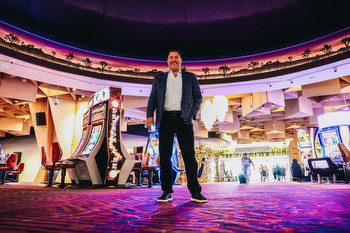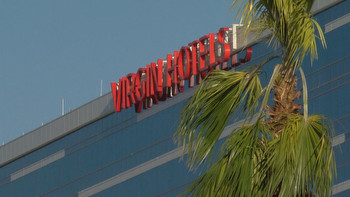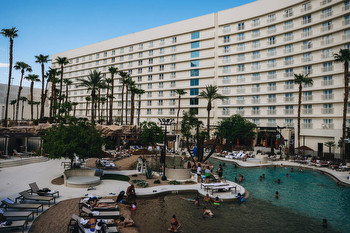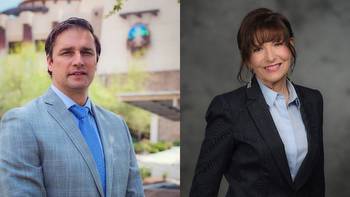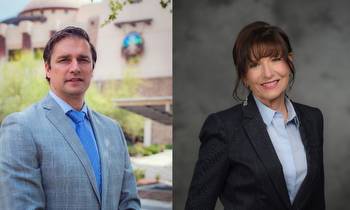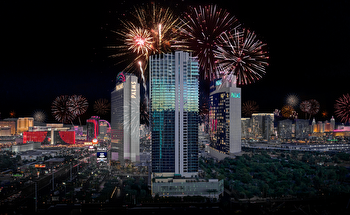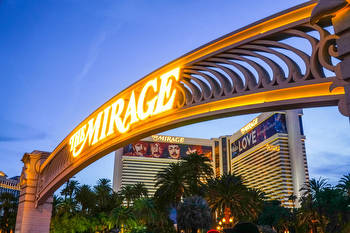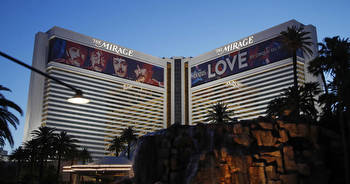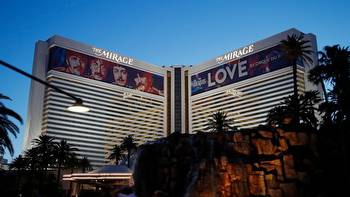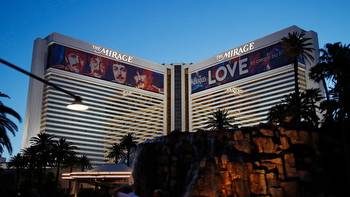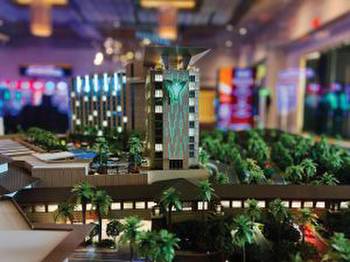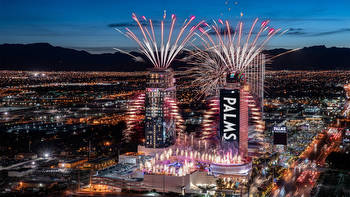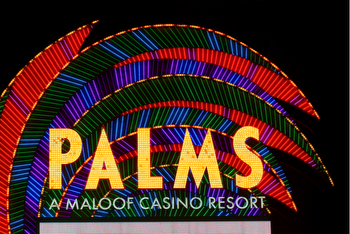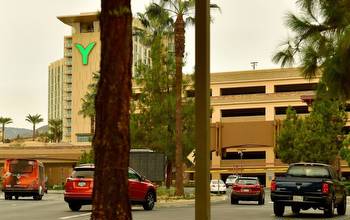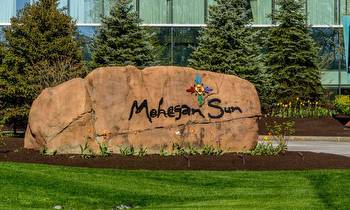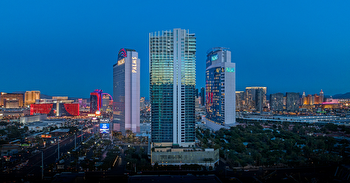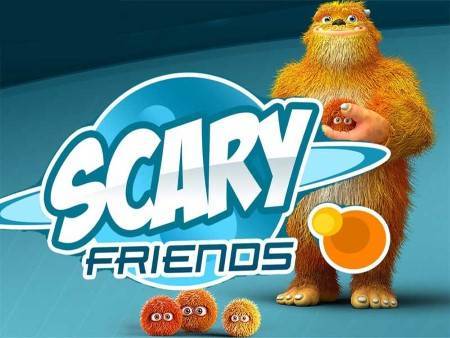Tribal casino operators see opportunity in Las Vegas

The Las Vegas market is proving to be attractive for tribal gaming operators.
In October, Mohegan Gaming & Entertainment became the first tribal enterprise approved to run a casino in the Las Vegas resort corridor. Seven months later, the San Manuel Band of Mission Indians announced plans to purchase Palms for $650 million. And Hard Rock International, which is owned by the Seminole Tribe of Florida, has voiced interest in moving onto the Strip.
“I think (the Palms sale) has tribes across the country thinking about Vegas,” said consultant Josh Swissman of The Strategy Organization. “This is just fortuitous timing for these tribes (to enter the market) given their performance over the years.”
A ‘natural evolution’
U.S. tribal gaming has been around since the 1970s, but operations were initially small, mainly consisting of small bingo halls and gaming facilities.
When the Indian Gaming Regulatory Act passed in 1988, establishing a regulatory structure for tribal gaming in the U.S., tribal gaming was worth about $121 million.
By 2017, it had grown to a $32 billion-plus segment, creating nearly half of all U.S. gaming revenue through operations in 28 states, according to a report from the American Gaming Association.
Over the years, tribal casino operators have taken to expanding into markets beyond tribal land. The Hard Rock brand, for instance, operates nine casinos across the U.S., only two of which are in Florida.
“This is really a natural evolution,” said San Diego State University professor Katherine Spilde, who has done extensive research on tribal gaming. “Once you’ve kind of built out your own property and maximized what you can do in the market that you’re in … we see tribes then looking to go into commercial expansion into a casino that’s not on tribal land.”
Macquarie analyst Chad Beynon attributes tribal operators’ growth to their “strong operational acumen, healthy reinvestment and capital preservation.”
“As tribes consider ways to grow their cash flows and dividends, we think expanding into places like Las Vegas make a lot of sense,” he said in an email. “Many of these tribes have larger regional integrated resorts which make the Las Vegas operational transition seamless from a learning curve.”
A Las Vegas asset allows operators to show off to 42 million tourists each year and can help establish what’s known as a “hub-and-spoke” model, where patrons can play at regional casinos and save up or qualify for vacation trips to Las Vegas.
Entering the Las Vegas market also can aid further expansion opportunities into other jurisdictions, proving that operators have what it takes to meet the “gold standard” of Nevada gaming regulations.
“To say you work in or near the Las Vegas Strip is a vote of confidence and a huge badge of credibility,” Swissman said. “All three (tribal operators would) stand to benefit from that association.”
And while the Strip market has struggled in recent months under the weight of the pandemic and limited travel, the city is quickly bouncing back to its former glory.
“It makes me feel good to know that all three have put a big emphasis on Las Vegas and really see the potential in the future of what Las Vegas has to offer,” Swissman said.
Laurens Vosloo, CEO of the California-based San Manuel Band of Mission Indians, said the tribe had been looking at diversification opportunities for about 20 years, but “honed in” on Las Vegas over the past couple of years, in part because of its proximity and their customers’ familiarity with the market.
“Who doesn’t want to be in Las Vegas?” he said. “It’s the gaming mecca of the world and the place to be. … It’s a natural and a good fit for us to have an asset there that we can send our customers to, contribute to that economy and be part of the Las Vegas community.”
Spokespeople for Hard Rock and Mohegan Sun — which launched the first Native American casino in Las Vegas in March — declined to comment.
In a January statement, Joe Hasson, general manager of the Mohegan Sun casino in Las Vegas, said that casino’s opening marked a “new era in Las Vegas.”
Different incentives
Spilde said there are “many differences” between tribal operators and typical commercial operators.
For one, tribal operators are regulated by tribal gaming commissions in combination with the National Indian Gaming Commission, a federal agency. Depending on the state, state regulatory agencies may also have regulatory authority.
The second difference: where the revenue streams end up.
“The revenue from the gaming is earmarked specifically to be invested back in the tribal community,” Spilde said. The main purpose “is to better the lives of the tribal citizens and the surrounding communities. … They all look at gaming as a way to invest in the social good.”
Lael Echo-Hawk, a tribal lawyer with two decades of experience in gaming, government and economic development, and currently principal at MThirtySix, PLLC, said this revenue stream model gives the tribal operators greater incentive to perform well.
“It builds homes for tribal members, it takes care of the elders, it makes sure kids can go to school,” she said. “It’s different than a company that has stockholders, that answers to them. … If (tribal casino operators) make bad decisions, then it hurts their community. It hurts their uncles and aunties and nieces and nephews.”
Impact on Las Vegas
The focus on giving back can already be seen in Las Vegas.
Even before the Palms sale was announced, San Manuel had donated $250,000 across eight Las Vegas charities: the Public Education Foundation, the Mayor’s Fund for Las Vegas LIFE, Catholic Charities of Southern Nevada, The Shade Tree, Noah’s Animal House, Make-A-Wish of Southern Nevada, Nevada Public Radio and The Smith Center for the Performing Arts.
The tribe has also formed sponsorship deals with the Vegas Golden Knights, Allegiant Stadium and the Las Vegas Raiders, and in 2020 presented a $9 million combined gift to UNLV’s William F. Harrah College of Hospitality and Boyd Law School, its largest out-of-state philanthropic gift to an educational or health care institution.
“If you look at San Manuel in the community and how they have a vested interest in the community, the tribe wanted to do the same thing in Las Vegas,” Vosloo said. “We want to make sure everybody knows we committed to the community, to people of Las Vegas, before before we start doing business there. That’s just a way that the tribe does business.”
Echo-Hawk expects this generosity from tribal operators to continue in Las Vegas.
“What you’ll see with tribes is that they invest in the community around them. We know that those partnerships with our local jurisdictions and our neighbors is really important and investing that way comes back tenfold,” she said. “You have people in the community that support you.”
Spilde expects to see Las Vegas benefit “greatly” from having tribal operators in town.
“I think they bring a really different perspective on how much a casino can contribute to society,” she said. “There is a public good that can be achieved based on your values, based on your organizational structure, based on how you invest the revenue back into the community rather than distributing all the revenue to corporate shareholders.”
Also, new players in the market — tribal or not — should help the competitive landscape along the tourist corridor.
That’s good news for customers, according to industry watchers.
Nehme E. Abouzeid, president of consulting firm LaunchVegas, said the best environment for consumers is one with both corporate and independent operators competing for their business. Swissman added that new operators will be able to bring in a “fresh set of eyes” and different operating philosophies.
“You’ll get these smaller operators coming in and approaching gaming operations and hospitality and restaurant operations on and around the Strip in a different way,” Swissman said. “I think these operators may cause some of the incumbents up and down the Strip to elevate their game as well.”








